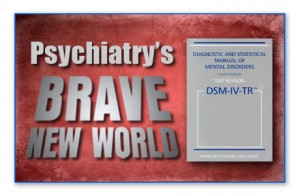
“Just another prick in the wall” — Psychiatry’s Quest for Dominance and Control
Through socialization and education we learn about what behaviours are appropriate and how one should feel and think about things. If individuals are judged to be “damaged” or “just not right”, they are sent away to be properly assessed and corrected.
